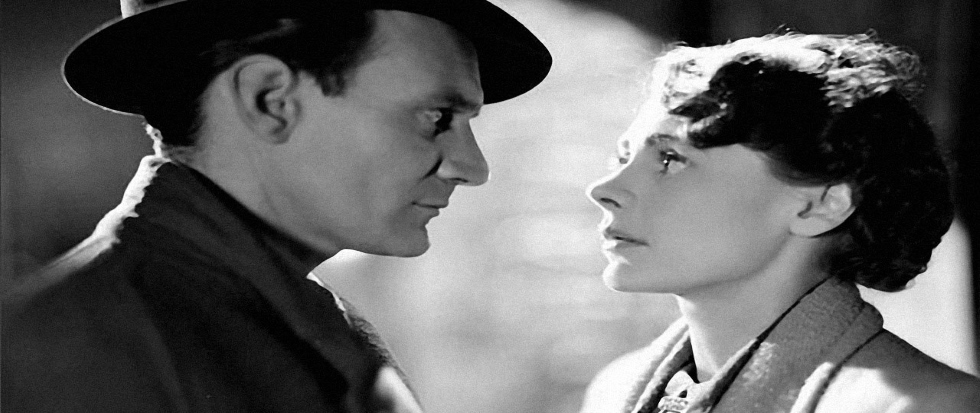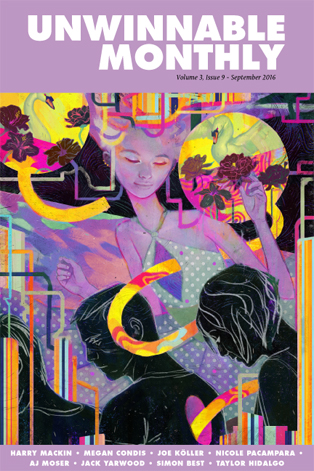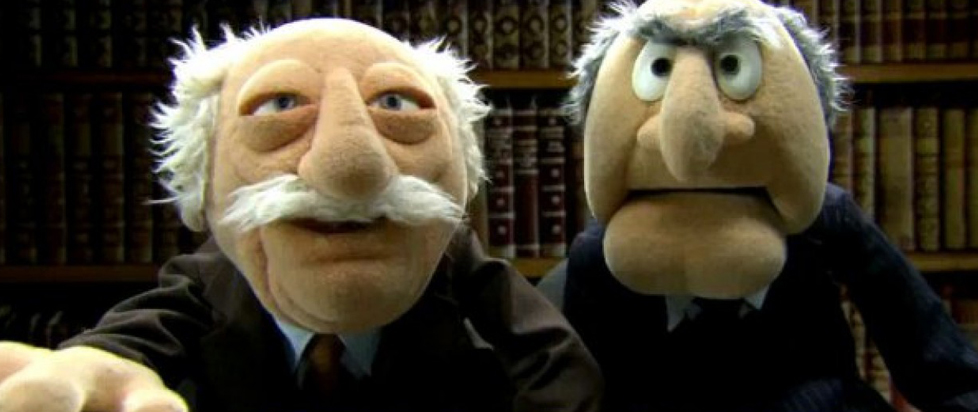
Brief Encounter
 This column is a reprint from Unwinnable Monthly #83, the Love issue. If you like what you see, grab the magazine for less than ten dollars, or subscribe and get all future magazines for half price.
This column is a reprint from Unwinnable Monthly #83, the Love issue. If you like what you see, grab the magazine for less than ten dollars, or subscribe and get all future magazines for half price.
———
Brief Encounter, a British production released in 1945, enjoys a popularity that most 70-year-old films do not. As recently as 2010, it topped a poll, conducted by the Guardian, of the greatest romantic films of all time and it has been consistently included in similar discussions since its release. Its story of a doomed almost-romance between a married man and woman – that is, not married to each other, but tempting (and ultimately abandoning) the idea of an affair – has apparently resonated across the generations.
To an unfamiliar viewer seeing it for the first time in 2016, this could be somewhat surprising. The film has aged noticeably in a number of ways and its vision of polite British society is of a brand parodied endlessly in the last half-century. Laura and Alec, its protagonists, fall seriously in love but never consummate their relationship and, eventually, choose to remain with their spouses, which could seem prudish, unrealistic or old-fashioned to some audiences. It’s also not a subtle film in the modern connotation of the term; where “show, don’t tell” is often held as an unimpeachable standard in contemporary filmmaking, Brief Encounter uses a narration by Laura that reveals most of the subtext to the audience. These choices might make it tough for someone today to see the filmmaking craft and emotional pull that have kept the film a popular favorite for so long.
If Brief Encounter does hold up, it’s probably because stories of love found at the wrong place and time are uniquely heartbreaking. The premise of repressed love, on its own, is often enough to generate emotional resonance in an audience, whatever the circumstances of the story might be. It’s a go-to scenario because of its innate power and, as a result, films like Brief Encounter, which might not otherwise be stylistically appealing to a contemporary viewer, can still speak to something sincere.
Brief Encounter chooses a narrative conceit that proves especially effective, though, and I think the manner in which it frames its story helps its emotional impact in subtle but meaningful ways. The framing device the film employs is a train station: its lead romantic partners first meet there and much of their interactions take place in and around this same station. This works for the purposes of the story, as a train station is a convenient location to place your characters in if you’d like them to encounter each other by chance. Beyond this, though, the station represents something essential about Laura and Alec’s relationship.
This is because a train station, really, is never a destination. A train station is a means of getting somewhere else, an in-between, a liminal space. In popular consciousness, we often associate train stations with items like clocks and a sense of running out of time. Everyone in a train station, we assume, is either coming or going. In Brief Encounter, all of this comes to bear on the relationship at its core. The film invokes all of these associations and lets them surround its two lovesick characters, because their situation mirrors that of this setting. Laura and Alec are stuck in a space in-between. The love they experience is no one’s idea of a destination.
There is an understanding, as the viewer watches, of the possibilities available to them at this station. They could board one of the trains coming in and leave their lives behind for each other. They do join each other on a recurring weekly Thursday date, which encourages the flirtation with this possibility. The lasting truth is that these trains will only ever take Laura and Alec further from each other, back to their spouses and to the domestic reality that will finally prevent them from being together.
In a similar sense, the station’s cultural associations with time reverberate in the fact that the two of them are perpetually running out of it. Initially, this is because they have just one day each week to see each other, and their schedules are tied to the trains. Later, this evolves into something grander, when Laura learns that Alec will be leaving for South Africa for a career opportunity, likely not to return.
This train station represents all of the paths they can’t take and all of the time they won’t have together. Even on a practical level, it exists as the only place they can be together without issue. When they do leave the station and head into town, they run the risk of being seen by friends, which happens at least twice. More than that, taking their relationship into the world beyond the station turns it into something tangible and makes them aware of what their life together could be like if they were to pursue it. It’s too painful and too dangerous to indulge consistently. The station, then, is the only place they can really be together, a place that holds all of the promise of what they could be but never will.
Maybe the film’s saddest, most heartbreaking moment – but one filled with a rush of happiness – occurs on their second scheduled Thursday date. Laura arrives on time and waits for Alec, who is running late. As the hours pass, she begins to assume Alec stood her up and won’t be arriving at all. She approaches the pedestrian tunnel when Alec finally appears and they embrace.
There’s a very brief window – probably less than a second – while watching this sequence when the viewer might hope Alec averts this whole thing by deciding not to return for their date. It is, of course, a ridiculous hope, as Laura’s narration has already informed us, thirty minutes earlier, of what happens between them. Yet this feeling surfaces against all odds. A part of us, deep in our gut, wants to remain ignorant of the heartbreak that Alec’s late arrival will cause. When we see him materialize, we understand, immediately, how this will all end. Despite all of this, there’s a romantic thrill at seeing Laura and Alec together, a relief at seeing them take whatever small chance they have and running with it, a gratification of the belief that love deserves to overcome all challenges. That fleeting instant between our wish for obliviousness and Alec’s appearance exemplifies why Brief Encounter remains affecting for so many.
Within the film’s most basic structure is a potent emotional combination. This is how it’s still able to find receptive audiences and why so many tales of lost love can leave such an impact on us. I don’t know what train stations will look like in another 70 years, but at the center of Brief Encounter is a feeling that will hold true then just as it did in 1945: that, in love as in so much else, where we have been and where we are is often as important to us as where we can’t go.




